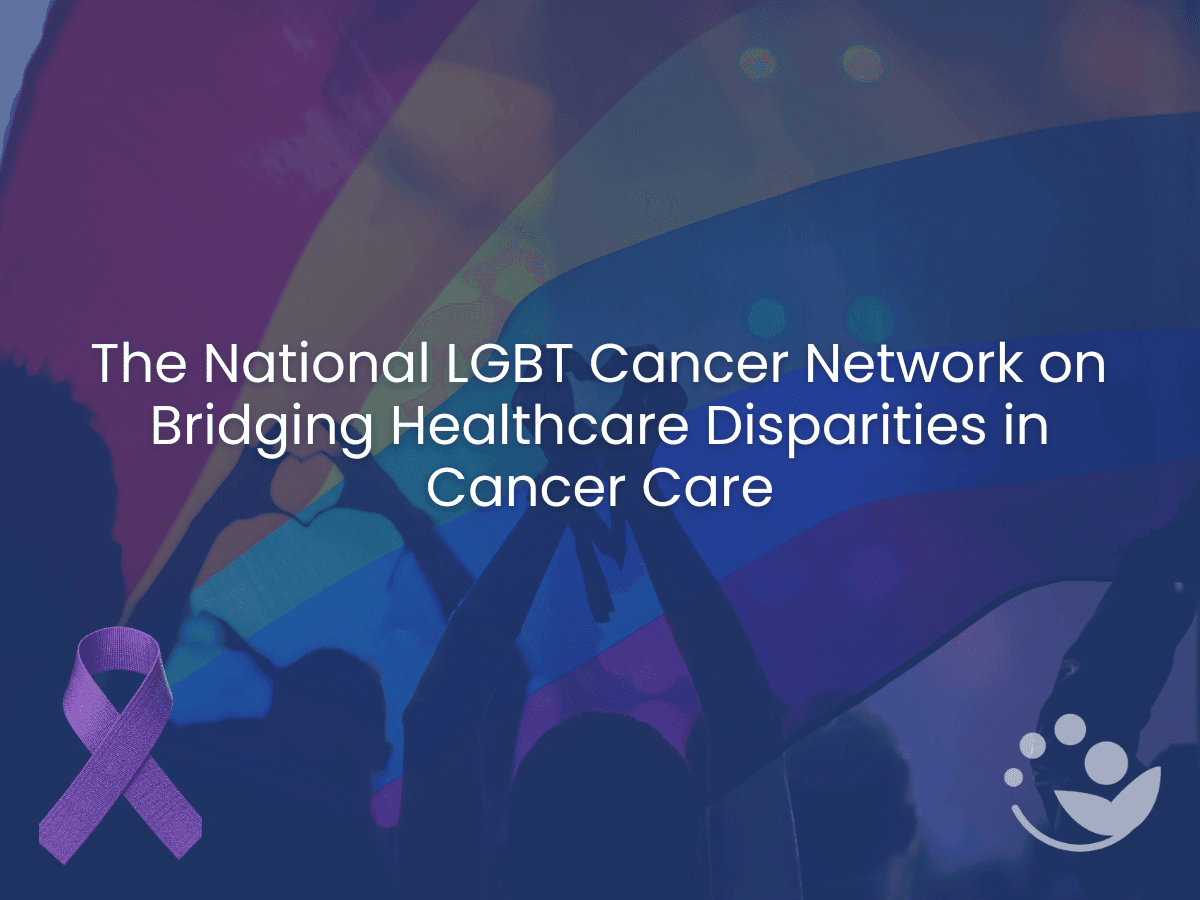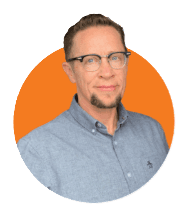The National LGBT Cancer Network on Bridging Healthcare Disparities in Cancer Care

Author
Binaytara Team
As a leader in global oncology, Binaytara is a committed advocate for cancer equity, ensuring that all populations, everywhere, have access to quality care. We recently spoke with the National LGBT Cancer Network’s executive director, Dr. Scout, about the organization’s efforts to close equity gaps in cancer care for LGBTQ+ patients. This conversation addressed how discrimination, policy changes, and social support services impact LGBTQ+ cancer patients as they navigate the healthcare system.
Highlights of the Interview
Discrimination and Health Disparities for LGBTQ+ Cancer Patients
Dr. Scout emphasized that LGBTQ+ individuals face significant discrimination in healthcare, leading to higher cancer risks, delayed diagnoses, and poorer outcomes. The lack of assurance that they will be treated with dignity results in less frequent screenings and reluctance to follow medical advice, directly impacting health outcomes.
The Importance of Visible Allyship in Healthcare
Dr. Scout highlighted that neutrality from healthcare providers is not enough; visible signs of support, such as using pronouns or displaying inclusive signage, are crucial. These small actions help LGBTQ+ patients identify safe and respectful providers, which can make a significant difference in their willingness to seek and continue care.
The Critical Role of Mental Health and Social Support
The interview discussed how cumulative discrimination can wear down LGBTQ+ individuals, making them more likely to refuse or abandon cancer treatment. Dr. Scout stressed the need for enhanced mental health and social support, including trained health system navigators and caseworkers, to keep patients engaged in their care and improve outcomes.
The Interview
Question | Binaytara: Can you tell us about your role and the work of the National LGBT Cancer Network?
Answer | Dr. Scout:
“I am the executive director of the National LGBTQI+ Cancer Network. I spend a lot of my time training healthcare providers on how to be more welcoming for the queer communities and how to increase patient safety for this population. We do systems change and policy change to make sure that our communities are treated with dignity as they both are screened for cancer and, of course, if they have to go through a full cancer journey as well.”
Q: What is the biggest challenge facing LGBTQ+ cancer patients today?
A:
“We are a set of communities that experience discrimination, and the first challenge is that we often turn to maladaptive health behaviors like smoking or not exercising enough to help us deal with that. So our cancer risks are higher than those of the general population. But if you really talk about the biggest issue we are facing, it is that we are not assured that we are going to be treated with dignity when we go to see a doctor. There is a lot of discrimination in the healthcare system, too, and that is a vulnerable time to experience discrimination. We understand that our communities don't get screened as often as we should. It's harder for us to find those welcoming doctors. One recent study showed that we were about twice as long to get diagnosed, about twice as likely not to follow doctor advice, and about three times as likely for our cancer to recur. Those barriers have physical impacts on our health.”
Q: What can healthcare providers do to be allies to LGBTQ+ patients?
A:
“The biggest point right now is that neutrality in this environment is not a neutral behavior. It is complicit in the new level of discrimination happening at the state and federal levels. The great news is you don't need to turn your practice upside down. You need to give us some hint that you are going to treat us with respect and dignity. That hint can be very small. It can be that you introduce yourself with your pronouns. It can be that you have an "all ages, all races, all sexual orientations, all gender identities" non-discrimination sign in your office. It can be that you have a "you are safe here" pin. We are looking for some hint that you are going to actually treat us with respect throughout the whole journey. That is not landing a man on the moon. That is a simple, easy bar to reach.”
Q: How do mental health needs factor into the cancer journey for LGBTQ+ individuals?
A:
“I think we probably have an unmeasured level of cumulative burden from discrimination on our actual physical health. There are probably many of us who have been fighting in a world that was not accepting of us for too long. And if we get something big like cancer, we are probably going to need many more mental health supports just to even go through treatment. I recently learned this firsthand when my mother, who was a lesbian, got diagnosed and unfortunately passed from her cancer. Even though I could open doors for her to get the very best doctors and treatments, when she hit a small stumbling block, her response was, ‘Forget it, I am going to hospice.’ We are hearing similar things from young trans people—that if they get a cancer diagnosis, they would say, ‘That's it, never expected to live that long, I am going to hospice out.’ We may be honestly too worn out to go through a big health battle like cancer because we have been worn down by discrimination.”
Q: What support strategies would you recommend for healthcare providers?
A:
“If you are dealing with any historically discriminated against population, be aware that individuals may need more glue to keep them in treatment. Use your caseworkers, use your social workers, provide as many support services as possible. One of our most promising areas of impact right now is training health system navigators to be more queer-friendly, queer-welcoming, and queer-supportive. I had a friend who was running away from care at a welcoming hospital, and I connected her with a queer health system navigator at a nearby hospital. Within minutes, he made her an appointment with the right doctor. Three days later, she was texting me with incredible relief, saying, ‘This is what I have needed all along, someone who would treat me with respect.’”
Q: Can you share what the National LGBT Cancer Network focuses on?
A:
“We have three main areas of activity: We educate our communities on our increased cancer risks. We train providers on how to do a better job with our communities. And we advocate in mainstream cancer organizations to make sure that some of their work is tailored to this population as well. We also have an LGBTQ and/or BIPOC early career internship program called Cancer Leaders Like Us. If there is anybody who works in an organization that wants an intern deployed at no cost to help build more resources around this topic, we have people interested and looking for placements.”
Q: What concerns do you have about recent policy changes?
A:
“The CDC office that funded our work with state departments of health was eliminated recently. The state tobacco control programs appear as if they will also be eliminated, as will state quitline funding. As part of this new situation, the tobacco industry is probably doing cartwheels right now, because a lot of our checks and balances that have reigned in some of their misinformation are being swept away. Our world right now is being .... well, closeted. Hospitals are taking down welcoming statements from their websites. People don't want to be put on welcoming lists. 100% of LGBTQ+ research at NIH that I know of has been terminated, and now they are trying to derail external places that support it, too. The problem is you can't just close your eyes and expect populations to disappear. We will still exist, and unfortunately, our health and cancer disparities are poised to grow with these changes.”
The National LGBT Cancer Network works to improve the lives of LGBTQ+ cancer survivors and those at risk by providing education, advocacy, and support services. For more information about their programs and resources, visit their website.
About Dr. Scout

Scout is the Executive Director of the National LGBT Cancer Network and the principal investigator of both the LGBTQ tobacco-related cancer disparity network and Out: The National Cancer Survey. He spends much of his time providing technical assistance to tobacco- and cancer-focused agencies expanding their reach and engagement with LGBTQ+ populations. Scout has a long history in health policy analysis and a particular interest in expanding LGBTQ+ surveillance and research. He holds faculty appointments at both Brown University and Boston University’s Schools of Public Health. He is a new member of the FDA’s TPSAC, a longtime member of the NIH Council of Councils, serves on the Advisory Panel for NIH’s All of Us initiative, and is the former Co-Chair of the NIH Sexual and Gender Minority Research Office Work Group. His work has earned him recognition from the U.S. House of Representatives, two state governments, and many city governments. Scout is an openly nonbinary and trans father of three, a vegetarian, an avid hiker, and a climber.